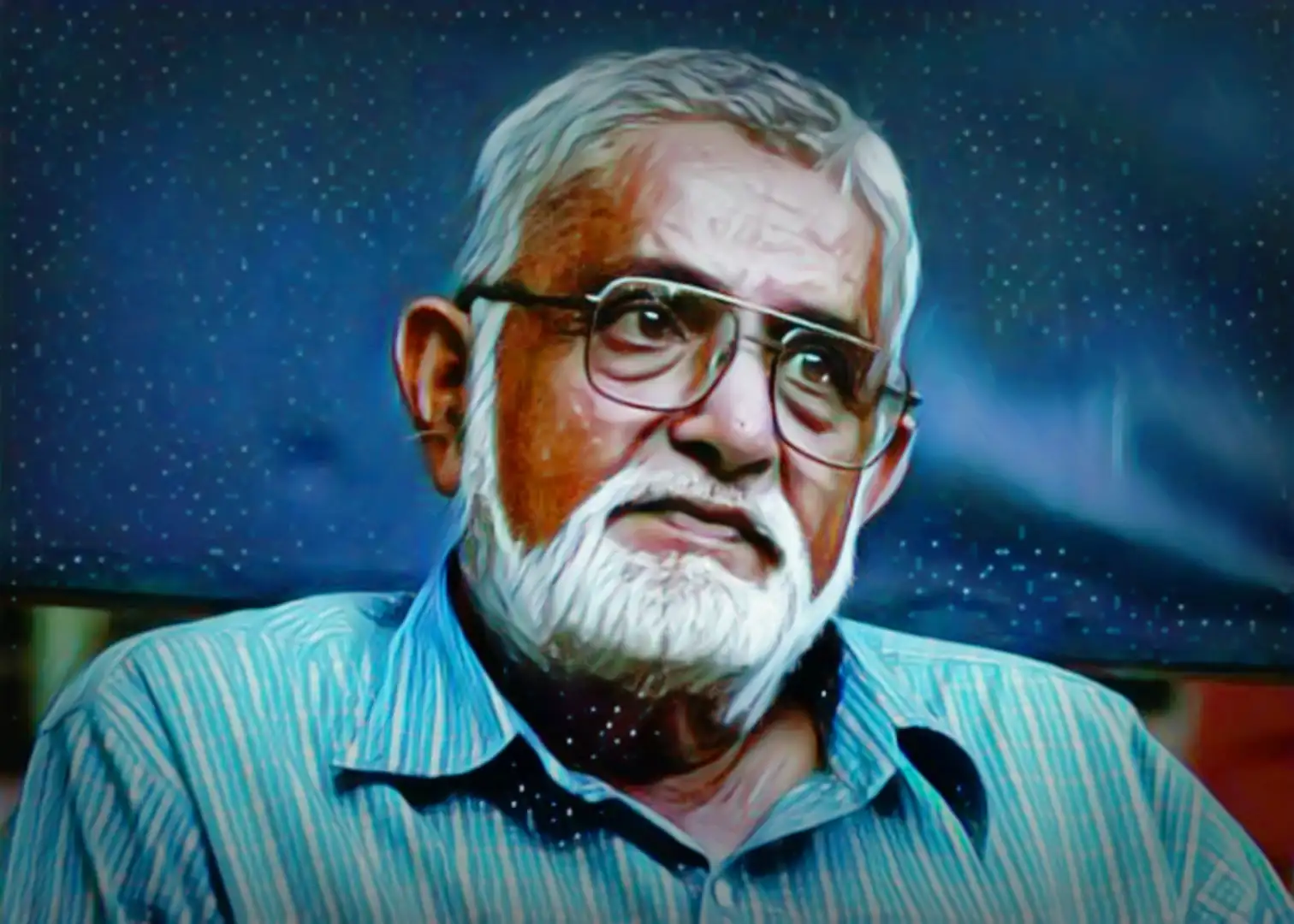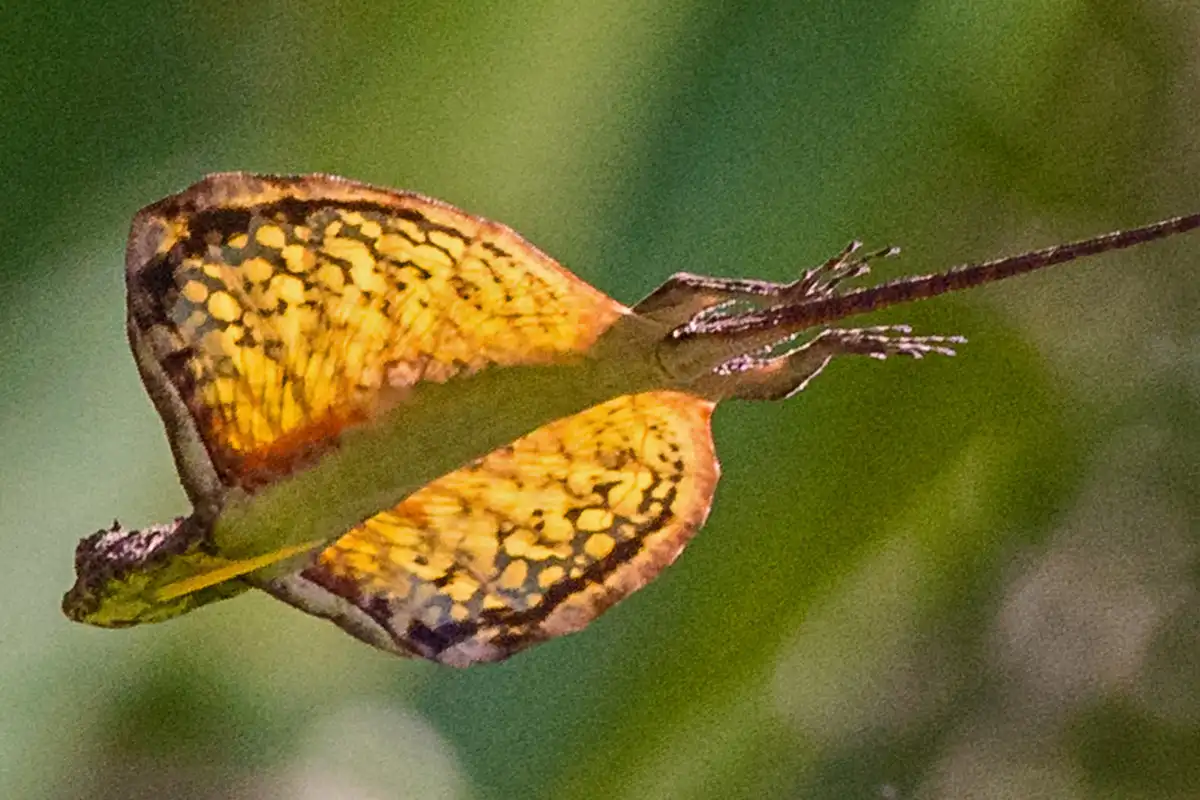K P Poornachandra Tejaswi: Legacy in literature and beyond

Vibha P
Comment section
You need to be a subscriber to comment
List of contents:
Introduction:
"Those who don't find everything interesting where they are, can't be interesting no matter where they go on a tour on the planet Earth"
Kuppalli Puttappa Poornachandra Tejaswi is known for his intellect and excellence in various fields. He was a prominent Kannada writer and a novelist in the 'Navya' period of Kannada literature and embarked on 'Bandaaya Sahitya' (a form of literature in protest against oppression). He was also a photographer, publisher, ornithologist, painter, naturalist, environmentalist and a great polymath.
Early Life & Education and Lifestyle & ideology:
Tejaswi was born on the 8th of September, 1938 in Kuppalli; a small village in Thirthahalli taluk of Shivamogga district. Born to Hemavathi and Kuppalli Venkatappa Puttappa, famously known as Kuvempu who was a Jnanpeeth awardee, Tejaswi had a unique writing style, distinct from that of his father. He was born and brought up in Kuppalli along with his brother Kokilodaya Chaitra and sisters Indukala and Tharini. He completed his undergraduate studies at Sahyadri Arts College Shivamoga and post-graduation at Maharaja College of Mysore. As he grew up seeing the beautiful art of Mother Nature, he was mesmerized by it. He later moved to Mudigere taluk of Chikkamagaluru District after buying a coffee estate, where he owned a farmhouse named 'Niruttara' which means 'unanswerable' in Kannada. He was fascinated by the ways of the living world and used to roam around in the forests of the Western Ghats.
He had mastered an exceptional way of writing, which can transport the reader into the storyline and induce any emotion appropriate to the context. He has written many stories about his adventures in the woods and tried to understand the workings of the macrocosm. He married Miss Rajeshwari, also a writer, in 1966 when he was 28. Unlike numerous environmentalists, he didn't prattle about saving nature, but lived a minimalist lifestyle in his farmhouse and constantly tried to explore and learn more about it. His thirst for acquiring knowledge was never satisfied. He spent his whole life investigating the mysteries of the natural world and it is evident in his writings.
He was deeply influenced by his father Kuvempu who was one of the greatest
poets and writers of Kannada and bore the title of 'Rashtrakavi'.
Tejaswi says:
"Lohia's philosophical thinking, Kuvempu's artwork, Karantha's view on
life and its practicality: these three have had a profound effect on my
literary creations. Perhaps these three are the inspiration for upcoming
artists in creating Kannada literature"
He has written in almost all
genres of literature. Some of his works have been produced as movies. His
works often explore the lives of ordinary people, their struggles, and
their connections with the environment.
Literary journey:
When he entered the world of literature, he used to write poems but later riveted on short stories, novels and novellas. His favourite topics to write about were birds and nature. He wrote a series titled 'Kannada Nadina Hakkigalu', constituting 'Minchulli', 'Hejje moodadha haadi' and 'Hakki Pukka' in which he describes the wonders of the feathered fairies. Most of the birds he talks about are the ones he observed and examined. He also narrates some of his amazing experiences with birds. These were collectively published as a photo album 'Mayeya Mukhagalu' in 2010. This photo album elucidates the importance of biodiversity.
Tejaswi's first short story was 'Linga banda'. 'Huliyoorina sarahaddu' is the first book of short stories of Tejaswi which contained two novellas, 'Swaroopa' and 'Nigoodha manushyaru' and six short stories. His famous collection of short stories is 'Abachurina Post Office'; there are four stories in this book, namely 'Tabarana kathe', 'Daredevil Mustafa', 'Abhachurina Post Office' and 'Kubi mattu iyala' which have all been made into movies. They have been awarded multiple accolades. Another famous book was 'Kiragoorina Gayyaligalu', which was also made into a movie and received a Filmfare award. But the readers of Tejaswi didn't like the film as much. He says, "Reading a novel is a unique experience for each reader. The same characters take different forms in the mind of each reader. It will be difficult for the readers to agree to set them all in a singular image".
Karnataka Sahitya Academy award was bestowed for his books of short stories 'Parisarada kathe' and 'Alemariya Andaman mattu Mahanadi Nile'. The latter is not only a travelogue but an extraordinary book providing valuable details about the Andaman Islands. He also talks about the mysterious search for the origin of the river Nile, which was unknown till 1858. 'Bruhannale Somuvina swagatha lahari' is his sole poetry collection. 'Yamala prashne' is a one-act play. 'Krishnegowdana aane' is a comedy play where the story revolves around an elephant brought as a pet and worker.
'Rudraprayagada Narabhakshaka' is an analysed translation of Jim Corbett's adventure stories.'Kadina Kathegalu' is a series of four books by Kenneth Anderson, analysed and translated into Kannada, comprised of thrilling hunting stories of man-eating leopards and tigers. In an age without the Internet, Tejaswi gathered and compiled information about several different cultures, customs, people, countries, histories, scientific mysteries and anomalies and provided their descriptions in the infamous 'Millenium' series, a catalogue of sixteen books. Among these, a special allusion to the translation of 'The Long Walk' by Slawomir Rawicz, 'Mahapalayana', is well deserved. It is imperative to note Tejaswi's prowess in translating foreign literature, preserving its quintessential emotions, qualities and spirit, and doing justice to the original creation and its author.

In his book 'Missing link', Tejaswi walks us through all the arguments about human evolution and its reality. It is an anthropological book which discusses the missing species of humans; the connecting links in the evolution process of apes to Homo sapiens. He has written the 'Vismaya' series of 3 books, which ponder how the universe was born and how flora & fauna were procreated from primitive compounds. It is an introduction to ecology, diverse biospheres, the elements, the significance of human-environment compatibility and many more intriguing questions. 'Flying saucers' is a collection of scientific case studies which address the copious amount of alleged UFO sightings in the Americas during the early 1900s.
Each one of the novels he has authored is an invaluable contribution to Kannada literature. Prominent among them are 'Mayaloka', 'Kaadu mattu kraurya' and 'Chidambara Rahasya'. 'Annana Nenapu' is his eminent biography talking about his father Kuvempu from his view and his lifestyle. 'Papillon' 1,2 and 3 are translated autobiographies of Henri Charrière, a French author, which are electrifying books which show the extent of man's eagerness to be free.
Tejaswi's 'Jugari Cross' is a suspense thriller story. It shows how people are, subconsciously, a part of a separate world and how they are affected by it without any fault. Seeing a flying lizard, the readers of Tejaswi will reminisce about the novel 'Karvalo'. It is a science-fiction novel where the author and an agricultural scientist wander the western ghats in search of a rare flying lizard, thought to be extinct in the storyline; but bizarrely a species of least concern in the IUCN conservation status.
Honours and Legacy:
Tejaswi has received the Rajyotsava Award for his concern and work towards nature and biodiversity and the Pampa Award for his contribution to the field of literature. His books have been translated into many languages and have frequently topped the reader's charts. His books continue to remain popular, going into multiple prints to date. The photographs he captured, including those of his father, are still being displayed in Kavishaila of Kuppali. Tejaswi breathed his last on the 5th of April, 2007 in Mudigere at the age of 68, but cherishes as their beloved "Poochante" in the hearts of his innumerable readers and fans. He persists in being an inspiration for upcoming writers of Kannada.
I had the opportunity to write this for my English assignment, and my excitement was high because he is my favorite author. Tejaswi Sir's unique perspective on everyday life has never failed to inspire me. I once believed that books could not match the thrill of visual storytelling, but his writings proved me wrong. I hold immense respect for him for exploring diverse forms of literature and solidifying his place as one of the greatest writers in Kannada.


29 Oct, 2024